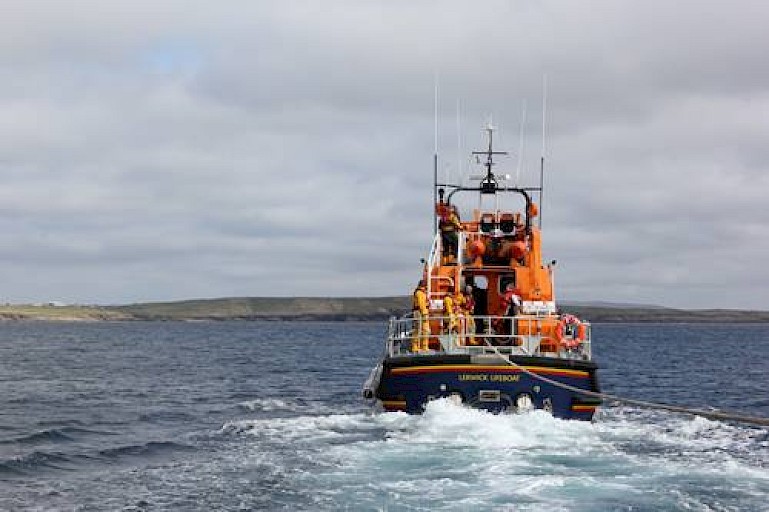


To make the metaphor more concrete, Hardin adds the lifeboat's capacity (60), current status (50 on board, and 100 swimmers), and proposes three potential solutions:
LIFEBOAT ACTIVITY FULL
At the time, based on per-capita Gross National Product, Hardin asserted that approximately two-thirds of the world's population was "desperately poor" and the remaining one-third was "comparatively rich" before launching his metaphor of each rich country being in a full lifeboat, while poor countries were in "much more crowded lifeboats" he described emigration as a continuous process where "the poor fall out of their lifeboats and swim for a while in the water outside, hoping to be admitted to a rich lifeboat, or in some other way to benefit from the 'goodies' on board" before asking what the rich lifeboat should do. In 1974, Hardin published two articles describing his view of "lifeboat ethics" in Psychology Today and BioScience. In the same 1968 article, he states the welfare state had created a situation that disrupted the natural state where "parents who bred too exuberantly would leave fewer descendants, not more, because they would be unable to care adequately for their children", and asked "how shall we deal with the family, the religion, the race, or the class (or indeed any distinguishable and cohesive group) that adopts overbreeding as a policy to secure its own aggrandizement?" He argued that "freedom to breed" coupled "with the belief that everyone born has an equal right to the commons " would inevitably lead to disaster.

Freedom in a commons brings ruin to all." : 1244 He concluded: "Ruin is the destination toward which all men rush, each pursuing his own best interest in a society that believes in the freedom of the commons. Hardin's 1968 "Tragedy of the Commons" article calls attention to the problem of human overpopulation, and describes his perception of the current prevailing sentiment, which he asserts was influenced by Adam Smith's invisible hand concept of economics, leading to a general belief "that decisions reached individually will, in fact, be the best decisions for an entire society." : 1244 Hardin rebutted that sentiment by citing an 1833 pamphlet written by William Forster Lloyd, giving an example in which allowing herdsmen unfettered access to a shared resource (in this case, a commons or pasture ground) would result in each herdsman concluding it was in their best interest to add more animals to their herd, inevitably leading to the exhaustion of that finite resource.


 0 kommentar(er)
0 kommentar(er)
